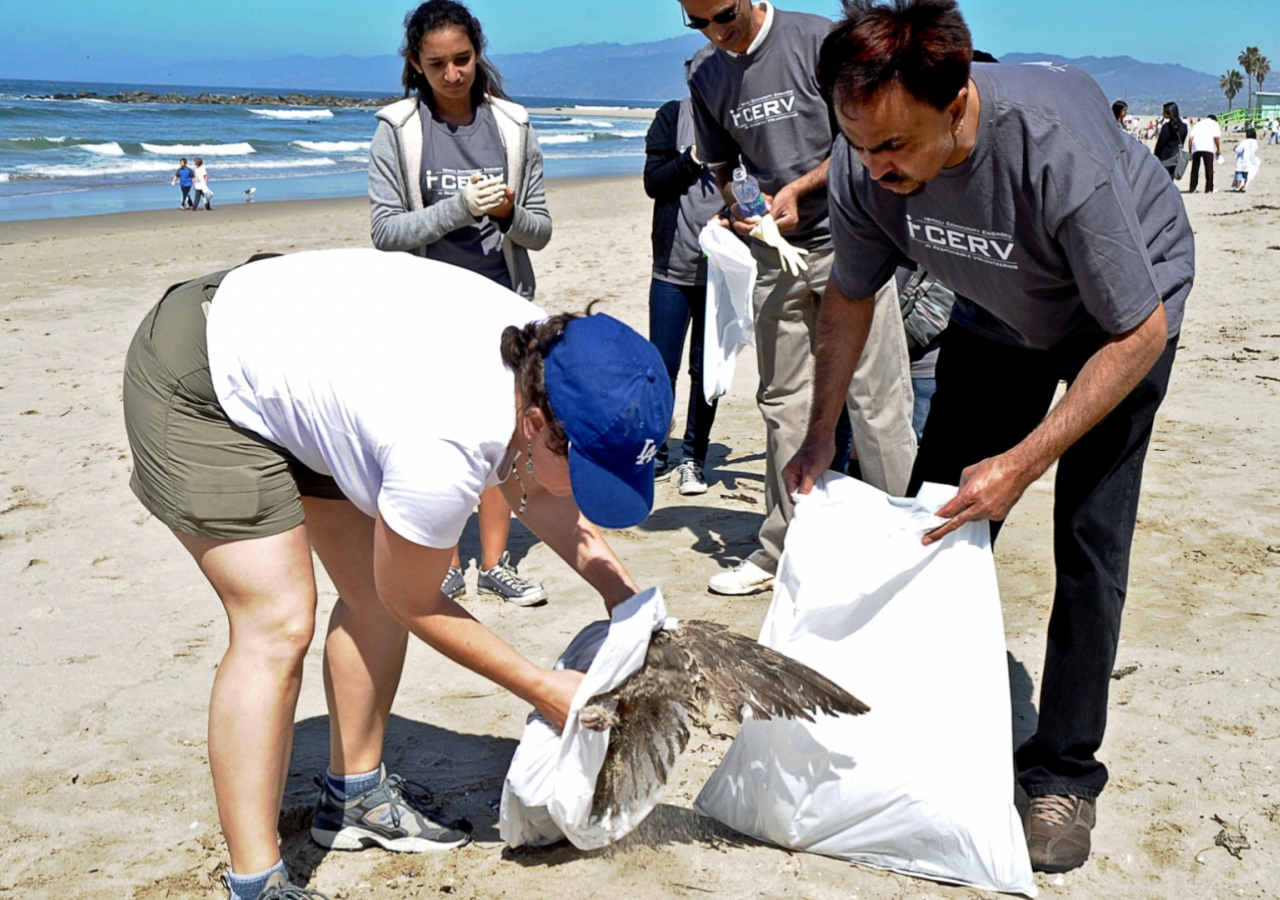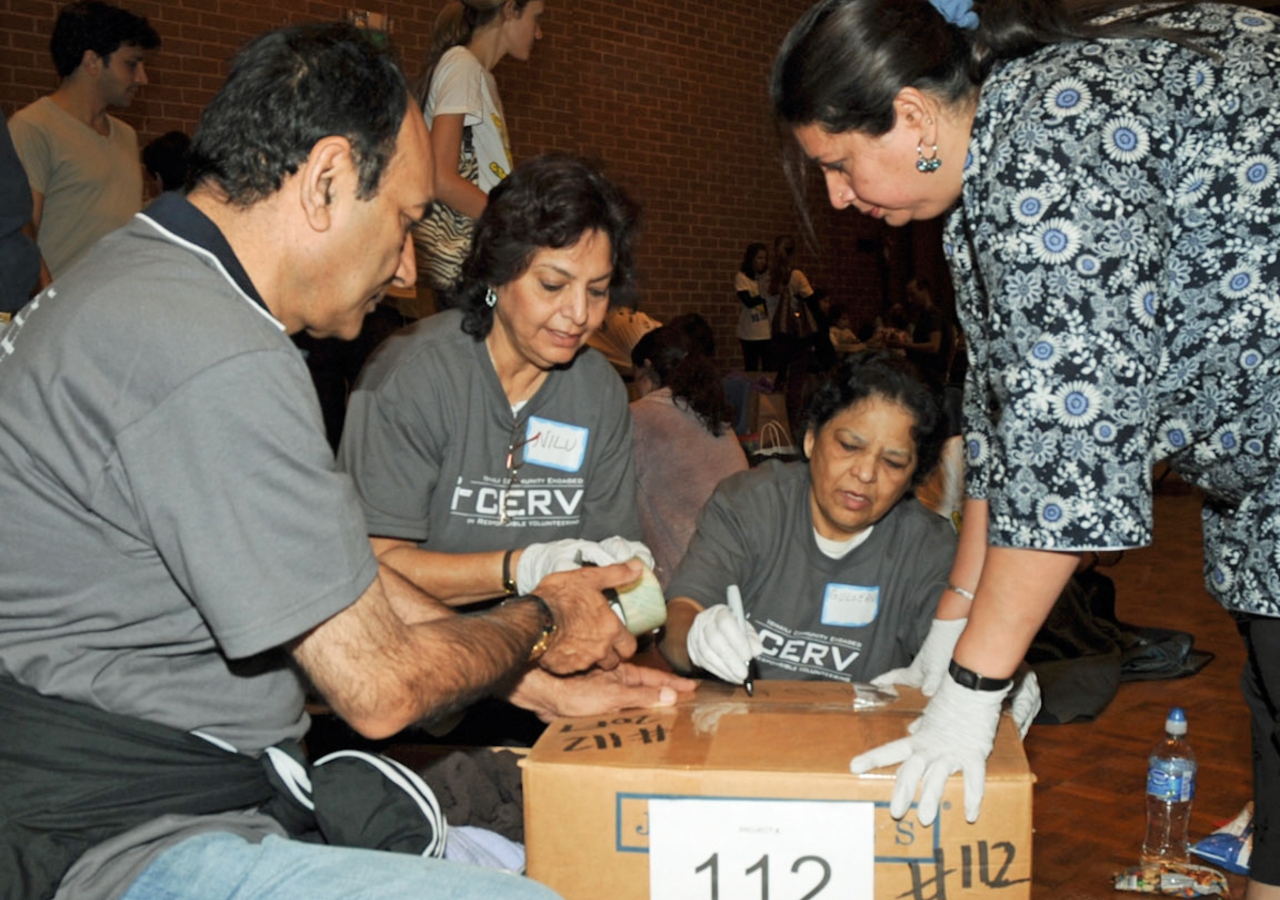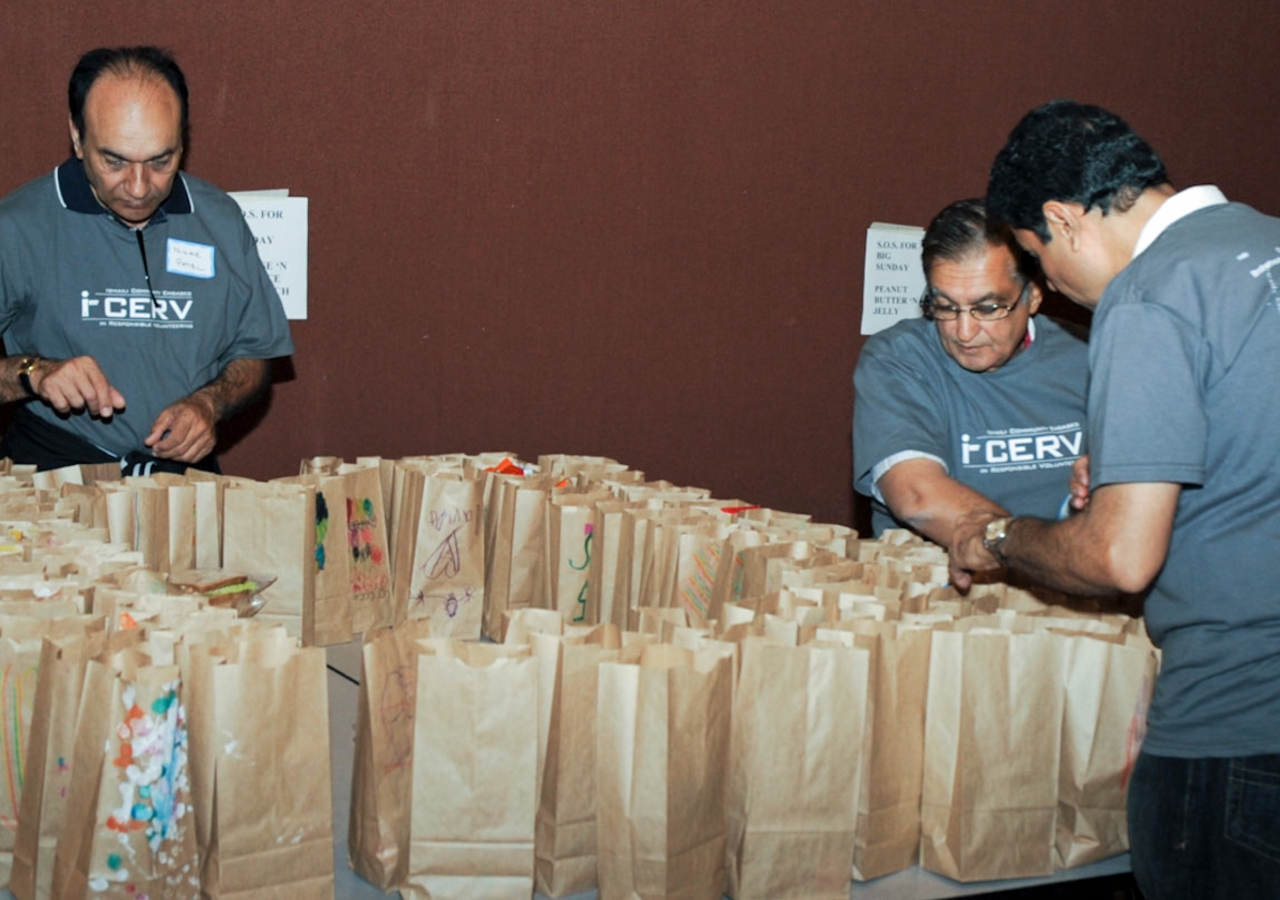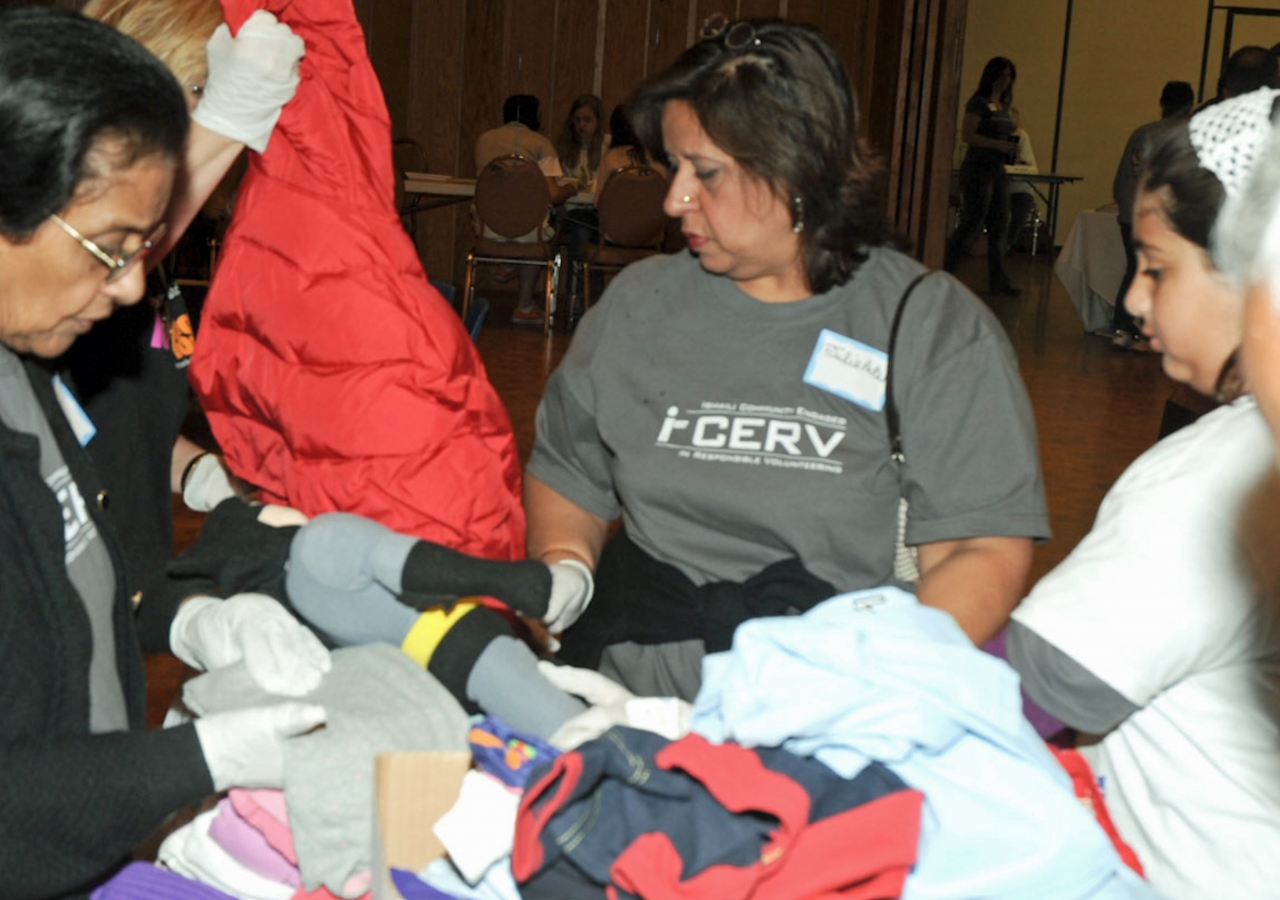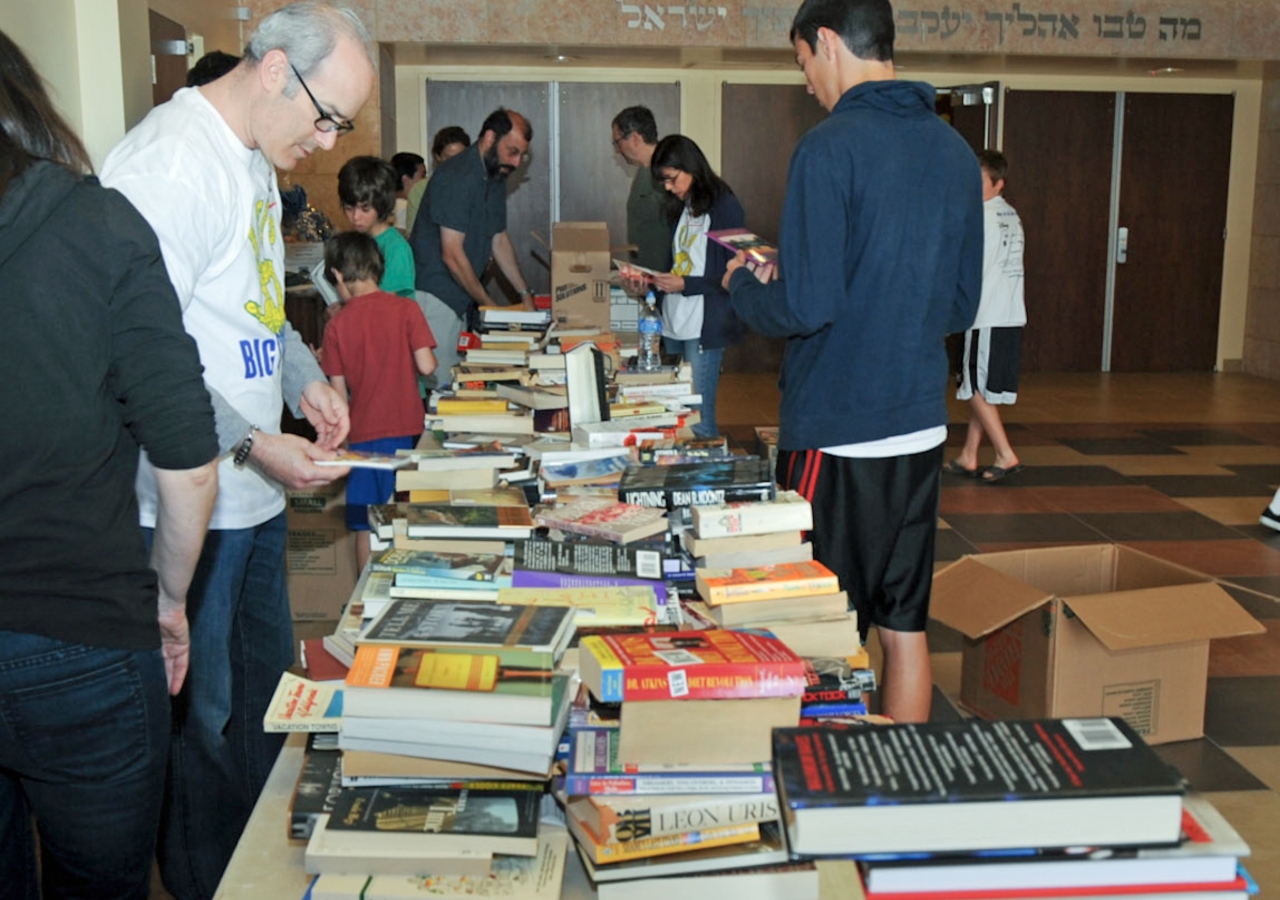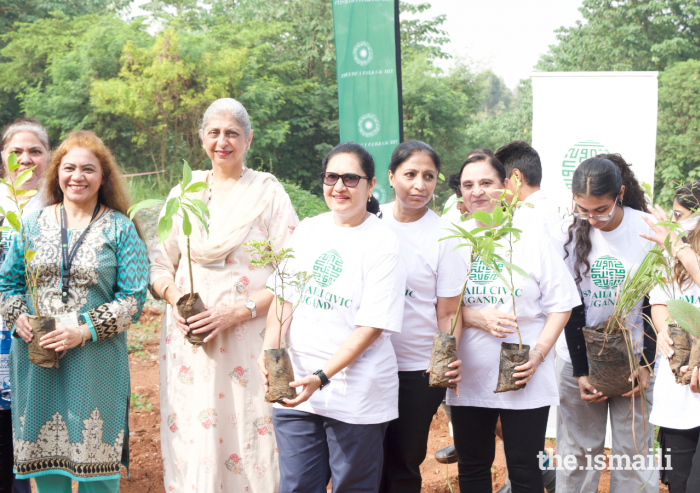Around the world, Ismaili Muslims seek to contribute to the development of the communities in which they live through a wide range of initiatives. Across the United States, Ismailis are taking part in various service activities to commemorate the upcoming anniversary of the September 11th tragedy in partnership with their fellow Americans.
It was in April 2009 that President Barack Obama signed the Edward M. Kennedy Serve America Act that established 11 September as a National Day of Service and Remembrance. The Act recognised the role of voluntary service in building the capacity of individuals and communities, and envisioned service as an act of remembrance.
“It's a way for us to contribute towards the larger civic effort of building harmony amongst Americans of all faiths and traditions,” says Laila Mobh, a volunteer who is helping to coordinate the effort on behalf of the Ismaili Council for the Northeastern USA.
Volunteerism and service to society are an integral part of the Ismaili Muslim tradition. Recently, Ismaili youth volunteers from New York helped make approximately 300 sandwiches at the Food Bank for New York City, which were then delivered to shelters for homeless families across the city. Through their service, the youth learnt about issues related to food security and also had the chance to visit some shelters and speak with the residents.
“I did not realise that there are over one million people in New York City who obtain their meals from food pantries,” said Adil Panjwani, a youth leader from Queens, New York. “In fact, the majority of this number consists of women, children and elderly. This service project has given me the impetus to learn about the issues of poverty and to help members of the New York City community obtain food security.”
Strengthening civil society
Community service and service-learning have long been recognised by educators as effective approaches to building strong democratic societies. They provide the volunteers a space where they can engage in deliberation and consultation, and move beyond differences based on gender, race, religion and culture to develop a set of common goals. Engagement in service activities nurtures social responsibility and strengthens the volunteers' commitment to civic values.
Zahra Kassam, Chairperson for the Aga Khan Youth and Sports Board for the USA observes that “service provides us with an opportunity to build common understanding and a shared vision with our neighbours while significantly improving the communities in which we live.”
“Through service” she adds, “we collaborate across socio-economic, cultural and religious lines to tackle the compelling social justice issues of our time and embrace our universal humanity.”
Service in Islam
Service to humanity is a fundamental ethical value embraced by all Muslims. It is rooted in the understanding that all peoples share in a common humanity, with an obligation to work together to improve our lives and fulfil the responsibilities assigned to us as the khalifa (trustees or vicegerents) of God. Surah An-Nisa in the Holy Qur'an speaks to the unity of humanity:
O mankind! Be careful of your duty to your Lord
Who created you from a single soul and from it created its mate
And from them twain hath spread abroad a multitude of men and women
– Surah 4, Ayat 1
This shared bond places a responsibility on us in regard to our conduct towards others; akin to the concept of kindness expressed in the Bible: “Do to others as you would have them do to you” (Luke 6:31). We are obligated to be compassionate and generous towards each other – social, material and emotional progress is only meaningful when enjoyed by everyone.
The notion of social justice is apparent in Surah Al-Baqara, which draws a parallel between piety and acts of charity and service:
True piety is this…to give of one's substance, however cherished, to kinsmen, and orphans, the needy, the traveller, beggars…
– Surah 2, Ayat 177
“Serving others with kindness, generosity and compassion without seeking anything in return is a powerful way for Muslims to put their ethical values into practice,” notes Suleman Khoja, an Ismaili volunteer from Florida. “Indeed, it is through service that these values take concrete form.”
Muslim ethics and American civic values
Informed by this ethic of service, Muslims across the world seek to contribute towards enhancing the quality of life of the communities within which they live by generously sharing their monetary and intellectual capacities, including the resource of time. In his speech at the 2011 White House Annual Iftar dinner, President Barack Obama underscored American Muslims' commitment to civic values: “Like so many faiths, Islam has always been part of our American family, and Muslim Americans have long contributed to the strength and character of our country, in all walks of life.”
In the United States, Ismaili Muslims engage in a range of local and national service projects on a regular basis through the Ismaili community Engaged in Responsible Volunteering (I-CERV) initiative. Service projects are organised around themes such as the improving the environment or addressing ultra-poverty, and have included partnerships with local non-profit organisations to provide meals to the hungry, renovate schools, clean parks, plant trees, visit the elderly, tutor children, provide disaster relief, and donate blood.
In 2010 for instance, Ismaili youth across the United States participated under the I-CERV umbrella in service activities aimed at protecting the environment. Over 1 000 youth rendered more than 3 500 hours of service and planted approximately 700 trees and 15 000 plugs of natural grass. The project allowed the youth to reflect on the notion of stewardship in Islam, and collaborate with local agencies to enhance the aesthetic quality of their neighbourhoods.
Ismaili volunteers have also been active in rebuilding communities in the aftermath of natural disasters. During the recent 2011 floods in Memphis, Tennessee and Birmingham, Alabama, volunteers collected and distributed non-perishable items such as water, clothes and toiletries at local schools that were converted into distribution centres.
For hundreds of years, peoples from many different lands have built the United States through the value of coming together and helping one another. Today, Ismaili Muslims continue in this tradition by engaging in voluntary service, hand-in-hand with their fellow citizens.
Further Reading
Saltmarsh, John. (1996).“Education for Critical Citizenship: John Dewey's Contribution to the Pedagogy of Community Service Learning.” Michigan Journal of Community Service Learning. vol. 3, no. 1, p. 13-21
Shah-Kazemi, Reza. (2011). Spiritual Quest. Reflections on Quranic Prayer According to The teachings of Imam Ali. Occasional Papers 3. The Institute of Ismaili Studies. London.

